“Beloved of God, Called to Be Saints”
Romans
LDS manual: here
Purpose
To explain why Christianity is incoherent and damaging to one’s ability to act.
To encourage readers to concerns themselves with what is real, rather than appearances.
Reading
I’ve acquired a new hobby: debating street evangelists!
And no, not like this:
I’ve decided that every time I see one, I’m going to engage (if I have the time, of course). I’ve talked to all sorts of Christians, but mostly Jehovah’s Witnesses — they’ve set up a display in the city district. The exact denomination doesn’t matter; I haven’t found that much difference between them.
The discussions tend to take a predictable rhythm:
- I ask why Jesus was necessary, and why God couldn’t just forgive everybody
- They explain that Adam didn’t obey God, so God decided to kill him and everybody
- You can’t do anything to remedy this situation yourself
- Killing Jesus was the solution that God decided to use to fix the situation
- We need to obey God so he doesn’t kill us in the run-up to his son’s return
It should be easy at this point to conclude that God is a raging psychopath who should be locked up, but for some reason they’re just not capable of making that jump. Maybe I’m just not explaining it well enough. I don’t know.
So when I saw this lesson, I got kind of excited because it contains some of these elements that religious folks are trying to explain to me. Here it is — Paul lays the groundwork for this emerging religion.
Main ideas for this lesson
Unbelievers are evil
Like all conspiracy theorists, Paul really hates people who don’t believe his way. And so does God — he’s going to unleash the wrath annnnnnytime soon.
Romans 1:18 For the wrath of God is revealed from heaven against all ungodliness and unrighteousness of men, who hold the truth in unrighteousness;
1:19 Because that which may be known of God is manifest in them; for God hath shewed it unto them.
1:20 For the invisible things of him from the creation of the world are clearly seen, being understood by the things that are made, even his eternal power and Godhead; that they are without excuse:
1:21 Because that, when they knew God, they glorified him not as God, neither were thankful; but became vain in their imaginations, and their foolish heart was darkened.
1:22 Professing themselves to be wise, they became fools,
1:23 And changed the glory of the uncorruptible God into an image made like to corruptible man, and to birds, and fourfooted beasts, and creeping things.
I don’t know what Paul’s talking about. I do think I’m pretty smart, but I’ve never changed the glory of God into a bird. Maybe Paul thought that was becoming a problem at some point.
Romans 1:24 Wherefore God also gave them up to uncleanness through the lusts of their own hearts, to dishonour their own bodies between themselves:
1:25 Who changed the truth of God into a lie, and worshipped and served the creature more than the Creator, who is blessed for ever. Amen.
1:26 For this cause God gave them up unto vile affections: for even their women did change the natural use into that which is against nature:
He’s going off on lesbians? That’s a first. Even in the Old Testament, they killed gay guys, but they never said a word about lesbians. It’s like there’s been some tacit agreement throughout the ages — dudes with dudes: ick; but girls on girls: kinda hot. There’s never been anyone in the Bible homophobic enough to have a go at lesbians, but now there is, and it’s Paul.
Behold the face of evil.
Romans 1:27 And likewise also the men, leaving the natural use of the woman, burned in their lust one toward another; men with men working that which is unseemly, and receiving in themselves that recompence of their error which was meet.
What the fuck is “the natural use of the woman”?
Romans 1:28 And even as they did not like to retain God in their knowledge, God gave them over to a reprobate mind, to do those things which are not convenient;
1:29 Being filled with all unrighteousness, fornication, wickedness, covetousness, maliciousness; full of envy, murder, debate, deceit, malignity; whisperers,
1:30 Backbiters, haters of God, despiteful, proud, boasters, inventors of evil things, disobedient to parents,
1:31 Without understanding, covenantbreakers, without natural affection, implacable, unmerciful:
Oh, Paul. It’s just impossible for him to stop slandering unbelievers.
Ask: When you stopped believing, did you become any of the following:
- filled with all unrighteousness?
- an inventor of evil things?
- full of murder?
- gay?
Or did you stay pretty much as you were, but just believed fewer stupid things and started drinking coffee?
What a slanderous litany to tack onto non-believers. For shame, Paul. If he’d stopped and looked around, he’d find that unbelievers live normal ethical lives. This has been found experimentally.
Religion Doesn’t Make People More Moral, Study Finds
Wisneski and his fellow researchers found that religious and nonreligious people commit similar numbers of moral acts. The same was found to be true for people on both ends of the political spectrum. And regardless of their political or religious leanings, participants were all found to be more likely to report committing, or being the target of, a moral act rather than an immoral act. They were also much more likely to report having heard about immoral acts rather than moral acts.
However, there were some differences in how people in different groups responded emotionally to so-called “moral phenomena,” Wisneski said. For example, religious people reported experiencing more intense self-conscious emotions — such as guilt, embarrassment, and disgust — after committing an immoral act than did nonreligious people. Religious people also reported experiencing a greater sense of pride and gratefulness after committing moral deeds than their nonreligious counterparts.
Everyone is bad.
Having established that non-believers are the worst, Paul now walks it back a bit, and explains how it’s not just the unbelievers. Actually, everyone is evil.
Romans 3:10 As it is written, There is none righteous, no, not one:
3:11 There is none that understandeth, there is none that seeketh after God.
3:12 They are all gone out of the way, they are together become unprofitable; there is none that doeth good, no, not one.
3:13 Their throat is an open sepulchre; with their tongues they have used deceit; the poison of asps is under their lips:
3:14 Whose mouth is full of cursing and bitterness:
3:15 Their feet are swift to shed blood:
3:16 Destruction and misery are in their ways:
3:17 And the way of peace have they not known:
3:18 There is no fear of God before their eyes.
3:19 Now we know that what things soever the law saith, it saith to them who are under the law: that every mouth may be stopped, and all the world may become guilty before God.
…
3:23 For all have sinned, and come short of the glory of God
Ask: Why does Paul need to teach that nobody is righteous? Why does he have to make unbelief sound so comically terrible?
Answer: In sales, you have to sell the disease before you can sell the cure. Essentially, Paul is selling the disease.
Romans 7:18 For I know that in me (that is, in my flesh,) dwelleth no good thing: for to will is present with me; but how to perform that which is good I find not.
7:19 For the good that I would I do not: but the evil which I would not, that I do.7:20 Now if I do that I would not, it is no more I that do it, but sin that dwelleth in me.
You know, I actually get this passage. I sometimes feel frustrated with the mismatch between what I want to do and what I do. Shoot, anyone gets this who’s ever had a lot of work to do, and ended up watching YouTube videos instead.
Let’s be honest: we all have imperfections and flaws, things we’d rather have done differently and values we fail to follow through on. That’s part of the human condition. But Paul is playing on this to drum up sales, and even worse than that, offering Jesus as an easy fix. How dishonest. What an evasion of our responsibility for self-improvement. Harping on someone’s brokenness doesn’t help to build a self-reliant person. What’s needed is action, not just belief.
It’s because of Adam
So how did we get to be in this sinful situation?
In a word, Adam.
Romans 5:12 Wherefore, as by one man sin entered into the world, and death by sin; and so death passed upon all men, for that all have sinned:
5:13 (For until the law sin was in the world: but sin is not imputed when there is no law.
5:14 Nevertheless death reigned from Adam to Moses, even over them that had not sinned after the similitude of Adam’s transgression, who is the figure of him that was to come.
5:15 But not as the offence, so also is the free gift. For if through the offence of one many be dead, much more the grace of God, and the gift by grace, which is by one man, Jesus Christ, hath abounded unto many.
5:16 And not as it was by one that sinned, so is the gift: for the judgment was by one to condemnation, but the free gift is of many offences unto justification.
5:17 For if by one man’s offence death reigned by one; much more they which receive abundance of grace and of the gift of righteousness shall reign in life by one, Jesus Christ.)
5:18 Therefore as by the offence of one judgment came upon all men to condemnation; even so by the righteousness of one the free gift came upon all men unto justification of life.
5:19 For as by one man’s disobedience many were made sinners, so by the obedience of one shall many be made righteous.
One guy did something, another guy undid something — so what? Where are we in all of this? We’re just pawns in some cosmic game. If you believe in Christianity, you must believe that we have a “sinful” tendency we can’t prevent, caused by a guy whose actions we’re not responsible for, and the remedy is some other guy whose help we didn’t ask for.
And it’s a creepy remedy too.
Romans 6:4 Therefore we are buried with him by baptism into death: that like as Christ was raised up from the dead by the glory of the Father, even so we also should walk in newness of life.
6:5 For if we have been planted together in the likeness of his death, we shall be also in the likeness of his resurrection:
6:6 Knowing this, that our old man is crucified with him, that the body of sin might be destroyed, that henceforth we should not serve sin.
Christianity really is a death cult, isn’t it?
Faith, not works
One of the most confusing and contradictory things about Christianity that I ever tried to get my head around was the role of faith and the role of works. For a long time, I thought I wasn’t smart enough or studying carefully enough. Now I realise that it wasn’t me; it’s Christianity. It’s incoherent. I’ve run across so many people who think it’s crystal-clear (in the direction of their doctrine, of course), but it’s just a mess. Thank goodness I don’t have to think about that stuff anymore.
Here’s a scripture that people used to throw at me as an LDS missionary. It quickly became my least favourite scripture.
Romans 10:9 That if thou shalt confess with thy mouth the Lord Jesus, and shalt believe in thine heart that God hath raised him from the dead, thou shalt be saved.
And then I would have to construct a complicated Mormon apologetic (big shoutout to the book of James) to explain why we actually need to do all the stupid time-wasting things Mormons do. It’s really hard to criticise a religion from the standpoint of another religion!
Of course, now that I’m coming from the standpoint of no religion, it’s easy. I just say: Paul, what rubbish you talk.
Paul really changed the game, you know. By changing the currency from “what you do” to “what you believe”, he constructed this situation:
- God punishes even good people for unbelief.
- No one can be saved by anything they do.
- We’re all helpless.
- Only this external being can rescue us.
This is a setup.
Mr Deity, as always, has spotted the problems with punishing people for misbelief.
And not only does Paul make “what you say” a criterion for belief, he also includes “what you say”. Anything but “what you do”.
I saw the effects of this a few times on the misson. One good Born-Again™ Christian man told me that he was forbidden to help (for example) someone move house.
“You don’t mean that you’re not allowed,” I said. “You just mean that it won’t save you.”
“No,” he corrected me. “We’re not supposed to do it. Unless the pastor gives the okay. Because that would be works.”
I was incredulous, but looking back I have to admit that he was taking Paul’s ideology to its natural conclusion.
And when what you think and say trumps what you do, you have the beginnings of a religion that’s very concerned with appearances — especially when it’s a small conversion-focused religion concerned about its image.
These verses hint at Paul’s concern with the semblances of things.
Romans 14:14 I know, and am persuaded by the Lord Jesus, that there is nothing unclean of itself: but to him that esteemeth any thing to be unclean, to him it is unclean.
14:15 But if thy brother be grieved with thy meat, now walkest thou not charitably. Destroy not him with thy meat, for whom Christ died.
…
14:20 For meat destroy not the work of God. All things indeed are pure; but it is evil for that man who eateth with offence.
14:21 It is good neither to eat flesh, nor to drink wine, nor any thing whereby thy brother stumbleth, or is offended, or is made weak.
In other words, if there’s some food that’s considered to be unclean, Paul says it’s no big deal, go ahead and eat it — UNLESS someone else sees you eating it, gets the wrong idea, and refuses to join the church or something.
The phrase my father (and, I gather, everyone else’s father) used to say was: Avoid even the appearance of evil. You should have heard the ear-bashing I got when I brought home some candy cigarettes. (And he was right; those things are evil.) But my LDS friend’s dad — a bishop — was even more concerned about appearances. He’d chastise my friend if he had the end of a white pen near his mouth while he was writing!
And it’s this concern with appearances that lends Mormonism its puritanical flair. How much better it would be if they could see things as they are, and not be so concerned with appearances.
I think this may tie into Christians’ ability to deny science and reason, as well. If how things seem is important — well, you can control how things seem to you. Things can seem any which way with faith. That’s easy. It’s not as easy to control facts.
Not ashamed
I hope I’ve made the case that Christianity is nonsensical and wrong — even if I’m not able to make that case to the street evangelists I talk to. It’s a form of belief that is silly and damaging. It is so foolish that people ought to feel foolish for believing it. And yet there they stand, day after day, in the pedestrian malls of my city and many others, trying to promote what every normal person knows is a fairy story. What an embarrassing thing to do! How do they not feel completely stupid?
Paul has the answer in Romans.
Romans 1:16 For I am not ashamed of the gospel of Christ: for it is the power of God unto salvation to every one that believeth; to the Jew first, and also to the Greek.
He’s teaching people to say “I am not ashamed”, as a way of countering the embarrassment they doubtless feel. It is nice to know that this was an issue even in the primitive church, and it gives us some idea about how the early Christians were regarded among their more sophisticated peers.
But here’s the rub: If you teach that we are helpless before a god who created us, and you want to worship this monster, and you want to do it by believing things that are manifestly untrue, then you should be ashamed. End of story. You need to do better.
Additional lesson ideas
Christianity’s weird relationship with Jews
Paul dropped a few other things into Romans. Looking back on our lessons, we can see a real tension between John — who’s always bashing on about the “fear of the Jews” — and Paul, who talks smack about their unbelief, but also talks about how they’ll absorb Christianity one day.
Romans 11:26 And so all Israel shall be saved: as it is written, There shall come out of Sion the Deliverer, and shall turn away ungodliness from Jacob:
11:27 For this is my covenant unto them, when I shall take away their sins.
11:28 As concerning the gospel, they are enemies for your sakes: but as touching the election, they are beloved for the father’s sakes.
Maybe Paul’s view was influenced by his double nature as a Christian Jew. But verses like this have laid the groundwork for a very strange alliance between Christian evangelicals (who are longing for Jews to return to Israel so the end can come) and conservative Jews (who are willing to look past the Christians’ conversion efforts if it means they have hawkish allies on Israel).
Check out this edition of “All In” with Chris Hayes to get a view of how this relationship is working out.
Or for a long read, try “On the Road to Armageddon“.
Millions of Americans believe that the Bible predicts the future and that we are living in the last days. Their beliefs are rooted in dispensationalism, a particular way of understanding the Bible’s prophetic passages, especially those in Daniel and Ezekiel in the Old Testament and the Book of Revelation in the New Testament. They make up about one-third of America’s 40 or 50 million evangelical Christians and believe that the nation of Israel will play a central role in the unfolding of end-times events. In the last part of the 20th century, dispensationalist evangelicals become Israel’s best friends-an alliance that has made a serious geopolitical difference.
Christianity’s weird relationship with secular government
Should Christians obey the law, or not? We’ve seen some high-profile cases lately where Christians have claimed that their belief trumps the law — and they can cite Peter in their defence.
Acts 5:29 Then Peter and the other apostles answered and said, We ought to obey God rather than men.
But now here’s Paul, claiming that secular authority should always be obeyed.
Romans 13:1 Let every soul be subject unto the higher powers. For there is no power but of God: the powers that be are ordained of God.
13:2 Whosoever therefore resisteth the power, resisteth the ordinance of God: and they that resist shall receive to themselves damnation.
13:3 For rulers are not a terror to good works, but to the evil. Wilt thou then not be afraid of the power? do that which is good, and thou shalt have praise of the same:
So what is it? Is Peter wrong, or Paul?
I think this is another case where the Bible is doctrinally incoherent. This allows Christians to play both sides of the fence, and pick and choose the rules they want to obey.
Overcome evil with good
Let’s finish with some good advice.
Romans 12:20 Therefore if thine enemy hunger, feed him; if he thirst, give him drink: for in so doing thou shalt heap coals of fire on his head.
12:21 Be not overcome of evil, but overcome evil with good.
A bit passive-aggressive there, Paul. “Let’s be nice to them; that’ll really piss ’em off!” But I’m not going to tell Paul off for it. Around here, we care about what you do.





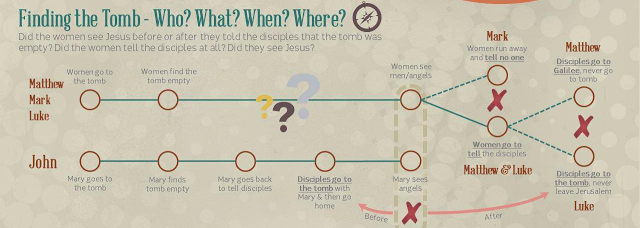

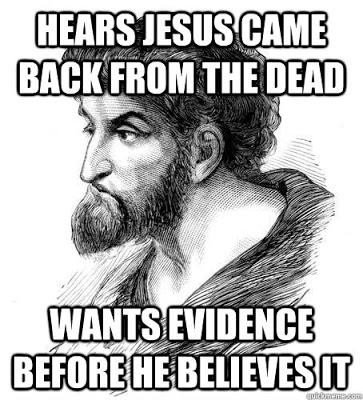
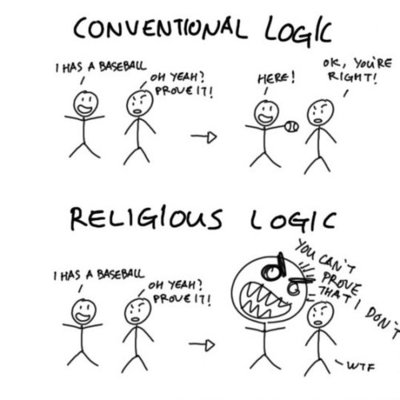
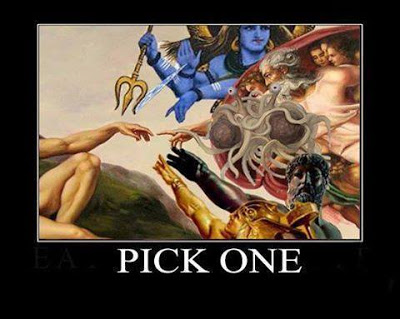





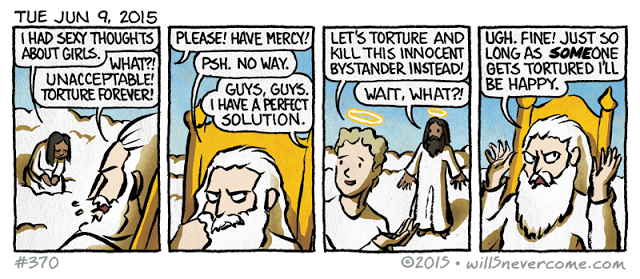





Recent Comments